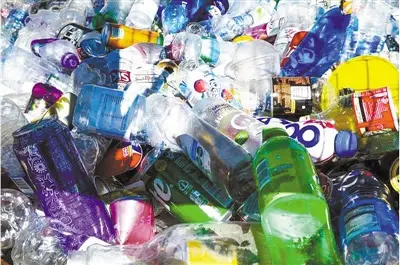American scientists at the university of Texas at Austin in the latest issue of the journal nature that they have developed a new kind of enzyme variants FAST - PETase, it can be dissolved in a few hours to several days normally need hundreds of years to biodegrade plastics, is expected to greatly promote plastic recycling, truly open plastic recycling economy background.
Latest research at Hal professor pearl said, they developed a new enzyme mainly for polyethylene terephthalate (PET), the plastic appears in most consumer goods packaging, including biscuits packaging box, soda bottles, fruit and salad, and some fiber and textiles, account for 12% of the global total, the number could be as high as billions of tons.
In the latest study, Alper et al. used machine learning models to create new mutations of a natural enzyme called PETase, predict which mutations will depolymerize waste plastics quickly at low temperatures, and then looked at 51 different plastic containers, five different polyester fibers and fabrics, and all water bottles made from PET, The effectiveness of one of these enzymes, called fast-petase, was demonstrated.
The researchers note that the new enzyme variant is able to complete a "circular process" that breaks the plastic down into smaller parts (depolymerize) and then reassemble it chemically (repolymerize). In some cases, these plastics can be completely broken down into monomers within 24 hours.
Recycling is the best way to reduce plastic waste, but globally, less than 10% of plastic is recycled. The most common way to dispose of plastic, besides throwing it into landfills, is to burn it, but this method is costly, energy intensive and releases harmful gases into the air. Alternative industrial processes include glycolysis, pyrolysis and/or methanolysis, but these processes are also very energy intensive.
Biological solutions require much less energy. For the past 15 years, scientists have been making progress using enzymes to recycle plastic. But no one has yet figured out how to make enzymes that operate efficiently at low temperatures so that they can be used on a large scale. New research confirms that FAST PETase can break down plastics at temperatures below 50 degrees Celsius.
Next, the team plans to scale up production of the enzyme for industrial and environmental applications. Researchers say the enzyme could be useful in waste management, such as cleaning landfills. To that end, they are working on ways to get the enzymes into the field to clean up contaminated sites.
(Source: Global Times)
 简体中文
简体中文

